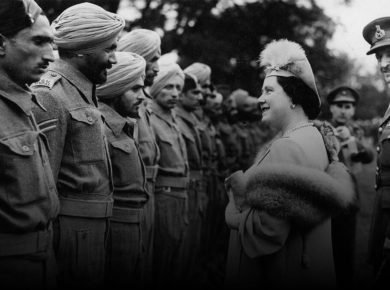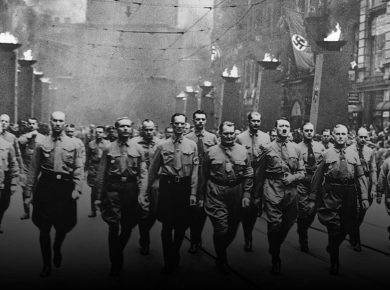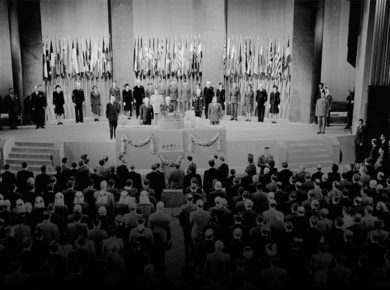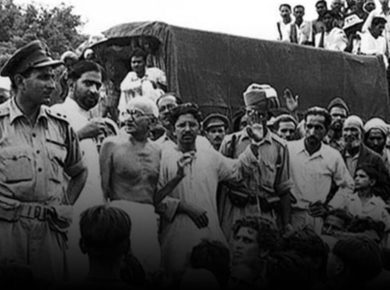Colonialism in Pacific, Central Asia and China
Colonialism in Pacific
In 1823, Monroe Doctrine was brought out by USA. It emphasized two things:
- Policy of Isolation
- Hegemony of US in North and South America
- It said that US would not interfere in the European affairs or colonies and it would treat any interference in its backyard (all of America) as an act of aggression.
- But by 1890s, USA emerged as a new Imperialist power. It started to bring areas outside America under its influence that is it extended the notion of its ‘backyard’ to the Pacific and Far East (China).
- Spanish-US war in 1898 (fought over Cuba, which along with Puerto Rico was the only Spanish Colony in the Americas):
- Philippines came under USA attack and consequently annexed.
- Spain ceded Puerto Rico and Guam to the US.
- Cuba though made legally independent; its foreign policy came under US control. It was forbidden to make any treaties with any other country
- Hawaii was officially annexed by USA in 1898.
- In 1899 Samoan islands were divided between USA & Germany.
- In the Fiji Islands it was on the demand of locals, who resented the autocratic rule, that Britain took over in 1885.
Colonialism in Central and West Asia
In Central and West Asia, the main rivalry for colonies was between Russia and Britain. Russia wanted access to the sea for trade and thus desired to control the ports. Russian expansion in Asia began after the Crimean war (1853-56) in which Russia lost against an alliance of France, Britain, Ottoman Empire and Sardinia (Italy).
In 1858, Russia forced China to hand over huge territory north of the River Amur establishing much of the modern border between Russian Far East & Manchuria (China). This gave Russia a port in Western Pacific. To check Russian influence in Tibet, Britain sent troops there in 1904 & acquired control over Tibet’s foreign policy.
Russia weakened after the defeat in 1904-05 Russo- Japanese war, made an agreement in 1907 with Britain and recognized Tibet & Afghanistan as areas of British influence. Thus, British were able to create a buffer zone between India & Russia.
In Persia (Iran), as per the 1907 agreement, Northern Iran was recognized as sphere of influence of Russia, Southern Iran of Britain and the Central Iran was made a buffer zone with equal freedom for both.
Most of the Far East was scrambled by 1871. Russia had one-third of the area under its control. In the East Asia, China and Japan were independent. Japan escaped Imperialism and embarked on Industrialization after 1868 Meiji Restoration. It became imperialist in 1890s and thus it was China, which became the target of Imperialism in 19th and 20th century.
Colonialism in China
By 1730 all European nations were trading with China, while USA started trading in 1784. China followed a policy of seclusion after Europeans started meddling in internal affairs, especially the Christian Missionaries from Rome. China allowed only limited trade through selected Chinese traders and only via port of Canton.
Two Opium Wars (1840-42 and 1858)
In 19th century Britain had become a major trade partner but it had a huge trade deficit as China was self-sufficient and imported little from the West. British were facing the burden of this trade deficit as the Chinese accepted only precious metals like Gold as payment for exports to Britain (especially Tea and Silk).
As a solution to this problem, the British started smuggling Opium in China & started paying from the profit accrued from smuggling. This was opposed by China and resulted in Opium Wars in 1840-42 and 1858. After the first Opium war –
- British took over Hong Kong and extracted trade concessions from China.
- Major ports of China were opened to British trade and residence.
- Free trade was imposed on China [arr] British could trade with any Chinese trader and custom duties were reduced.
- A British diplomat was permanently stationed in China.
- British citizens in China could only be prosecuted under the British law.
Soon, England & France fought another war with China, on the pretext that a French missionary had been murdered. This resulted in Treaty of Tianjin –
- Even more Chinese ports were opened for trade.
- The European ships got rights of transit in Chinese rivers and Europeans could freely travel across China.
- China was made to guarantee security of life of Missionaries and the latter were given right to establish Churches anywhere in China. Ironically along with all this religiosity import into China, the Opium trade was also legalized.
After the second Opium War, many more European nations, some South American nations and Japan established trade relations with China. Thus, China was opened up with different imperialist powers gradually establishing their Spheres of Influences in China.
Loss of territory north of River Amur to Russia in 1858 [arr] In 1858, China was weak. It was losing in the 2nd Opium War and was fighting the Taiping Rebellion. In 1858, Russia threatened to attack & thus forced China to hand over huge amount of territory north of the River Amur.
Sino-Japan War (1894-95)
This war was fought mainly over Korea, which was hitherto under the control of China. After the loss, China recognized Korea as an independent state (*Japan occupied Korea in 1910). China was forced to pay about $150 million to Japan for war damages.
- Formasa (Taiwan) was occupied by Japan.
- Senkaku islands in South China Sea, which are today a point of contention between China and Japan were annexed by Japan after this war.
- Manchuria came under economic influence of Japan where it made lot of capital investments after 1890s as it was very important due to its high coal and mineral reserves
Sphere of Influence
Now, China had to pay war damages to Japan, but she did not have enough cash. So, France, Russia, Britain and Germany agreed to give loans to China. But in return, these Western countries divided China into “sphere of influence” viz. each Western country had certain regions of China reserved exclusively for its purpose only (Exclusive rights to build railway, mines etc. in that region).This division of China into spheres of influence has been often described as the “cutting of the Chinese melon”
United States Open door policy– According to this policy, all countries would have equal rights to make trade anywhere in China. Britain supported this policy, thinking that it would discourage the annexation of China by Japan or Russia.
Boxer Rebellion (1899-1900)
By 1900, China was divided into spheres of influences (thus China was reduced to a status of International colony). It was felt that it would soon be partitioned, with each Imperial power ruling its sphere of influence.
The rebellion was against foreign interference in political, economic and religious affairs & was crushed by a joint Anglo-German-Russian-French-Japanese-American force.
The Empress was forced to pay massive compensation for damage to the foreign property in China. Boxer Protocol, signed thereafter, allowed foreign powers to station their troops for protection of their citizens in China. After the treaty, Russia continued to occupy all of Manchuria.











1 comment
thankyou very much to share the knowledge.